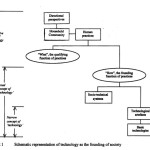Uitgeverij Balans – Aankondiging en fragment
 De aankondiging van het dagboek op de site van Balans. Met fragment.
De aankondiging van het dagboek op de site van Balans. Met fragment.
https://www.uitgeverijbalans.nl/boeken/een-ontspoorde-wereld/
12 oktober 1940
De laatste tijd kom ik weinig aan schrijven toe. Ik brei veel. De kinderen zijn door het onregelmatige onderwijs vaak thuis in mijn vrije uurtje. Dan blijft het schrijfuurtje ongebruikt. Jammer!
Eergisternacht – 10 op 11 oktober – was vreselijk. Verschrikkelijk was dat er een bom in een tuin viel vlak bij het huis van mijn broer en grote verwoesting aanrichtte rond het Haarlemmerplein. Van alle huizen in de wijk waren de ramen gesneuveld, en in de Stolwijkstraat kwamen twee mensen om.
Mijn familie, die in Duitsland al zoveel heeft meegemaakt, moet dit nu hier meemaken. Mijn schoonzus is helemaal op van de zenuwen. Totaal overstuur kwam ze ’s ochtends vroeg naar ons toe, de schrik nog in de benen. De klap moet vreselijk zijn geweest. Ik was gisteravond op de plaats des onheils, net als duizenden anderen. De tranen sprongen je in de ogen als je zag welke verwoesting was aangericht. Alle ruiten gesprongen, alle winkelramen kapot, wat een schade voor mensen die het toch al niet zo breed hebben. Mijn broer heeft die avond ontzettend geluk gehad; aan hun kant van het huizenblok was niks beschadigd – een wonder.
Lees verder op de site van Balans
World Order In The Age Of Trump And Trumpism
Based on lecture given at West Chester University, October 24, 2018.
The title requires a few words of explanation. By the ‘Age of Trump,’ I mean not only the current American president. The phrase is meant to encompass elected leaders like him around the world. I have a friend in India who refers to Narendra Modi as ‘our Trump’ and the newspapers have been full of commentary to the effect that the new leader of Brazil, Jair Bolsonaro, amounts to ‘a Brazilian Donald Trump,’ although some familiar with Bolsonaro’s worldview insist that ‘a Brazilian Joseph Goebbels’ is more accurate. This extension of Trump to Trumpism is meant to make us aware that Trump is not just an American abnormality. He reflects a structural conditions that seem global in character, although with significant variations from nation to nation.[i]
By referring to ‘Trumpism’ my intention to highlight several issues beyond this autocratic brand of ‘democratic’ leader:
(1) To associate ‘Trumpism’ with a deliberate U.S. withdrawal from political and neoliberal globalization, without significantly challenging, perhaps even augmenting military globalism, enhancing capabilities to project destructive power anywhere on the planet, while weakening alliance commitments and multilateral trade frameworks;
(2) Trumpism also refers to the populist base of support for a global array of strong leaders, and their accompanying right-wing social, economic, and cultural policies, with the threat of ‘fascism’ and fascist tendencies being increasingly feared and perceived, even in centrist discourse;
(3) Trumpism also involves a shift of preferred worldview from globalist to nationalist centers of political gravity, with a loss of normative support for human rights, democracy, and multilateral diplomacy and cooperative forms of multilateral problem-solving and treaty making; and
(4) in the American setting, this phenomenon of Trumpism is not tied solely to the person of Trump; it could survive Trump if one or more of several scenarios unfold—for instance, in the 2018 and 2020 national elections the Republican Congress is reelected, even if Trump should be defeated or compelled to resign—in effect, the Republican Party has been effectively taken over by the ideas, values, and approach of Trump, and vice versa; it is difficult to disentangle ideological cause and effect as between party and leader.
The Kavanaugh confirmation hearings were one kind of straw in the wind, considering the iron party discipline manifested, and suggesting that the American judiciary will be Trumpist for many years even if Trump is defeated. Trump’s judicial appointments would set the judicial tone for years, if not decades, were the Democratic Party to take control of the Senate as early as November.
There is one important confusion surround the global approach of Trump, which arises from the perception of Trump as incoherent, impulsive, and dishonest, and nothing more than an opportunistic narcissist. I think this confusion can be exposed by distinguishing between Trump as tactician and Trump as strategist. It is as if it is necessary to approach the identity of Trump as an either/or question: either Trump is completely ad hoc and opportunistic or he knows what he is doing, and has been effective in carrying out his plan. My view is that Trump is both an erratic personality and a right-wing ideologue. Read more
The GOP Tax Cuts Are Already Hurting Social Security
The GOP has been intent on destroying Social Security since 1934 when its creation was first proposed by the Roosevelt administration. This, however, remained always a rather remote possibility … until now. With Trump and Congress transferring even more wealth to the rich and large corporations in the form of tax cuts that will land the country $10 trillion deeper in debt, the party of pseudo-fiscal hawks is campaigning hard for legislation that will lead to sharp cuts in Social Security and other entitlements.
In this context, the 2018 midterm elections could be the most consequential midterm election in years, according to Teresa Ghilarducci, an internationally known economist on labor and retirement. In this exclusive interview, Ghilarducci — a professor at The New School for Social Research, as well as the author of numerous books including Rescuing Retirement: A Plan to Guarantee Retirement Security for All Americans and When I’m Sixty-Four: The Plot Against Pensions and the Plan to Save Them — shares her analysis of the GOP attack on Social Security.
C.J. Polychroniou: Senate Republicans (and possibly a few Democrats) have their eyes set on slashing Social Security and other entitlements in order to balance the budget, although it is their own policies that have led to greater indebtedness. How serious is the possibility that they can succeed in undermining security retirement for millions of Americans?
Teresa Ghilarducci: During the 2012 presidential campaign, Republican politicians — including then-Texas Gov. Rick Perry and Sen. Ted Cruz — called Social Security a Ponzi scheme, which reveals a misunderstanding of Social Security finances and Mr. Ponzi’s 1920 investment fraud swindle — when Mr. Ponzi definitely spent more than he took in.
Further, in September of last year, newly appointed White House Economic Adviser Larry Kudlow commented that, “We have to be tougher on spending.” Strengthening that view, Senate Majority Leader Mitch McConnell — in what seemed to be a defense of the bad news surfacing in mid-October 2018 that the 2017 tax cuts will substantially deepen the federal deficit — claimed that the deficit ought to be blamed on the Democrats for their unwillingness to cut Medicare, Medicaid and Social Security.
The blame for the increase in the projected deficit falls on the tax cuts of 2017 that were a result of the Republican control of the federal government — almost all Republicans voted for the tax cuts and almost all Democrats did not. The cuts added $1 trillion to the federal deficit and the nonpartisan Joint Committee on Taxation did not support Republican arguments that the $1.5 trillion tax cut would pay for itself with economic growth. Senator McConnell’s announcement today makes clear political elites will use Social Security, Medicare and Medicaid as bargaining chips in budget negotiations and call for cuts in government spending.
I feel this accretion of Republican statements means that after the midterms, the higher federal deficits caused by the tax cuts of 2017 will fuel the chronic attack to cut the programs. Read more
- Page 4 of 4
- previous page
- 1
- 2
- 3
- 4




